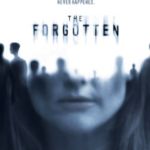The Giver (2014)
“If it’s against the rules, how can it be right?” That’s the pivotal question asked of the young hero of this dystopian film, and life and death are at stake in his response.

For two decades, actor Jeff Bridges hoped to get this movie made. With its release in 2014, his dream came true. Based on Lois Lowry’s 1993 Young Adult novel The Giver, which won the 1994 Newbery Prize, the film portrays a future planned town, a city-state so overwhelmingly and craftily totalitarian that its residents – subjects, really – have no idea they are even being oppressed.
The immediate cause of their mindless contentedness is that every morning when they leave their dwellings for their duties of the day, they must slap a device that gives them a chemical injection. They’ve been told that this jab of happy juice is “for their health,” but in fact it removes negative feelings. The more remote reasons for the people’s lack of awareness take a little explaining.
Called “The Community,” the town, many of whose modernistic structures resemble university campus housing, sits atop a tall mesa. Just below it on all sides are cloud banks that obscure the surrounding territory. It never occurs to the naively mellowed-out denizens to wonder what it’s like out there under the clouds.
This state of affairs is intentional. In the far distant past, a catastrophe, “the Ruin,” was so devastating and caused so much suffering that afterwards the survivors decided to organize a collectivist, egalitarian, tribal and eugenics-based society that would eliminate every memory of the past. They would exchange “disorder” for “harmony.” But that meant erasing so much that is good about humanity: individual liberty, the primacy of conscience, reverence for human lives, the institutions of marriage and family, and even faith and the knowledge of love itself.
If you’re thinking any thoughts about this situation bearing any resemblance to anything going on in real life today, maybe you’d better keep them to yourself. Either that, or shout them from the rooftops.
The powers that be had created a surveillance state in which an all-powerful Chief Elder (Meryl Streep) grimly rules the roost. The state’s one concession to the past is the office of Receiver of Memory. Bridges himself is that sole human repository of all previous learning and experience, but he is aging and must now groom a successor.
That person, Jonas (Brenton Thwaites), comes along during a communal Ceremony of Graduates, in which all of the year’s 16-year-olds are assigned their lifelong career – think School to Work. Think also, if you will, Hillary Clinton’s 1996 book, It Takes a Village, a chapter of which is titled, “Childhood Can Be a Service Academy.”
So all-pervasive did The Community’s jettisoning of everything from the past become, by the way, that the movie represents it by filming large segments in black and white. Color starts happening for Jonas as the Receiver of Memory begins easing him into his future role of Receiver. The Receiver, who tells Jonas to call him “The Giver,” hence the movie’s title, does so by grasping Jonas’s arms and inducing brief trances in which the boy glimpses fragments of the past with all its joys, sorrows and, eventually, horrors.
Entranced by visions of joyous people dancing and kissing at a wedding party, Jonas goes home and starts acting out, which he is not supposed to do. He teaches his little sister Lily (Emma Tremblay) some dance steps, and he eventually gently kisses his childhood friend Fiona (Odeya Rush). These baby steps to independence anger the all-surveilling Chief Elder.
Jonas stops taking his daily medication when he sees there is much more to life than The Community admits and allows. The Receiver notices this change in Jonas, approvingly. He also explains love to Jonas, who then realizes he loves Fiona.
Fiona’s specified career is that of a Nurturer; she cares for newborns in the communal nursery. The babies come not from married couples – intimacy for them is forbidden – but from the Community’s designated child-producers. After Jonas’s mom (Katie Holmes) and dad (Alexander Skarsgård) are assigned a baby, Gabriel, to raise, Jonas feels love for the little one and always comforts him.
Trouble arises when bureaucrats decide that Baby Gabriel is less than perfect. They take him away to be “released.” Enlightened by the Giver, a horrified Jonas telepathically sees a technician-executioner dispassionately kill another baby by lethal injection. Thus, Jonas sees that to be “released” means to be euthanized. He also realizes that the Community’s practice of “releasing” old people “to Elsewhere” means euthanasia for them, too. He exclaims that the Community hasn’t eliminated murder as an evil from the past after all, they’ve just called it by a different name.
Now Jonas has come to his moment of truth: What will he do about Baby Gabriel? Should he defy the state to do the right thing and rescue the little one he loves? He knows that saving Gabriel “is the only way to make everything okay.” This is when Jonas’s go-by-the-book friend Asher (Cameron Monaghan) objects, “If it’s against the rules, how can it be right?”
What happens next will have major consequences for not only Jonas, Baby Gabriel, and Fiona, but also the rest of the Community and its entire future.
One off-note is when the Chief Elder tells the Giver, “When people have the freedom to choose, they choose wrong. Every time.” Use of that pro-abortion slogan is off-putting in this otherwise pro-life film.
Phillip Noyce directed “The Giver” and Ross Emery provided its beautiful cinematography. The film’s MPAA rating is PG-13, for “a mature thematic image and some sci-fi action/violence.”
— Dan Engler













